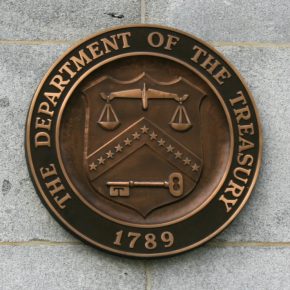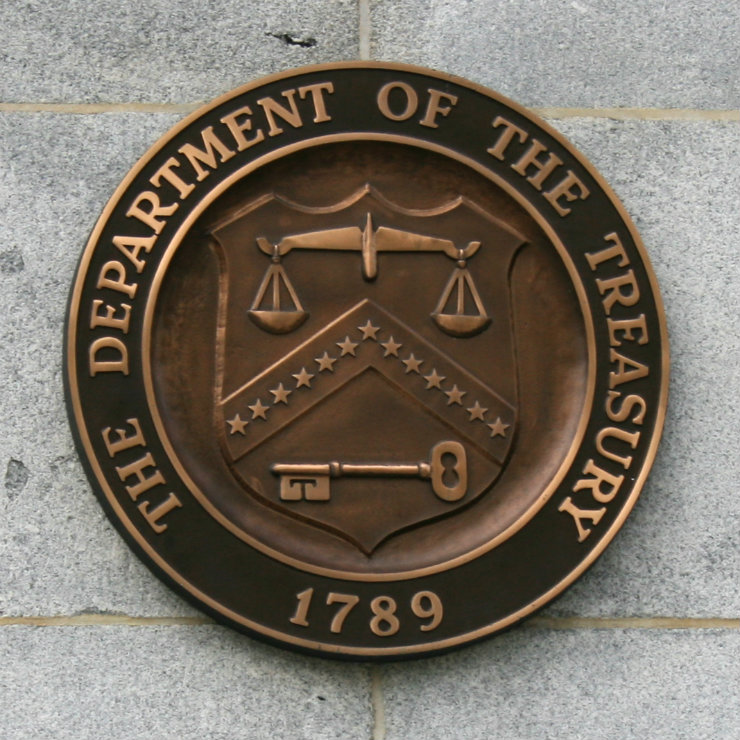Tydzień w gospodarce
Category: Raporty

(woodleywonderworks, CC BY)
According to the US government officials, the latest sanctions were imposed in a response to Russia’s “malign activity”, including its actions in Ukraine, support of President Bashar al-Assad in Syria’s civil war and subverting Western democracies. The sanctions freeze all U.S. assets of the targeted individuals and companies and forbid American citizens from entering financial transactions with them.
The latest round of the US sanctions hit Russian financial markets particularly hard. The next working day, after sanctions were imposed on April 6th, the RUB suffered its biggest fall in more than three years, the main Russian stock index plummeted and both foreign and domestic investors dropped their positions in businesses controlled by Russia’s main aluminum magnate Oleg Deripaska.
Last week, the Russian currency sells at RUB63,5 against the USD, a drop from around 58 before sanctions were imposed. Such a massive drop in the value of the Russian currency against the USD hasn’t occurred since January 2015. Equally devastating was the first “post-sanctions” trading day for the main RTS index which dropped 11 per cent, affecting a large number of Russian companies that have not been targeted directly by the U.S. Treasury.
The main targets of the US sanctions were Rusal and seven other companies linked to Deripaska. Rusal sells around 10 per cent of its aluminum in the US. After the sanctions were imposed, the price of the commodity shot up with many investors worrying Deripaska’s company would be blocked from selling its products. The firm’s representative now worry that the sanctions could cause technical defaults on bank loans and some credit obligations. Another Russian oligarch affected by the latest US move was Roman Abramovich, whose London-listed steel company Evraz’s shares dropped 15 per cent.
Apart from the companies in Deripaska’s holding directly targeted by the US sanctions, several other flagships of the Russian economy not featured on the sanctions list suffered equally devastating losses. This is due to the US Department of the Treasury’s Office of Foreign Assets Control’s (OFAC) “50 per cent rule.” The rule stipulates that “any entity owned in the aggregate, directly or indirectly, 50 per cent or more by one or more blocked persons is itself considered to be a blocked person.”
An example of how such measure affects businesses not directly targeted by the US sanctions is the situation involving companies in the portfolio held by the sanctioned Ukrainian-born Russian businessman Viktor Vekselberg’s Renova Group. One of the companies in Vekselberg’s portfolio is the Swiss pumps producer Sulzer. Currently, Renova group owns 63,4 per cent of shares. So, as things stand now, the Swiss company would be affected by the US sanctions to the same extent as their original target to which the company is linked. In response, Renova group has already informed that it plans to sell some of its shares back to Sulzer, retaining 48,8 per cent, just below the threshold set by the US Department of the Treasury.
Apart from the Swiss company, Renova group has a majority stake in dozens of other companies in Europe and the United States. Similarly, the sanctioned aluminum company Rusal has around 35 subsidiary companies, including 14 located outside of the Commonwealth of Independent States (CIS) in countries like Italy, Switzerland, United States, etc.
Among the seven sanctioned Russian oligarchs appeared a name very familiar to anyone following the US sanctions against Russia. Igor Rotenberg is the fourth member of the Rotenberg family to be targeted by the sanctions. Prior to the appearance of his name on the latest sanction list, Igor’s father, Arkadiy, grandfather Boris and cousin Roman, had already been blacklisted by the US.
In 2014, after Igor’s father found himself targeted by the sanctions, Rotenberg junior simply bought his father’s share in OOO Gazprom Bureniye, formerly known as OOO Burgaz. This helped the company temporarily escape the impact of the sanctions. Such asset transfers became highly popular among Russian elites targeted by western sanctions. However, having identified the pattern, the US Department of the Treasury now sanctioned both Rotenberg junior and Gazprom Bureniye itself.
Russia’s largest financial institution, the state-controlled Sberbank, saw its shares fall 17 per cent. According to the deputy chairman of Sberbank’s board of directors Alexander Morozov, the bank’s exposure to companies hit by the latest round of the US sanctions represents less than 2,5 per cent of its portfolio. “The overall risk Sberbank is exposed to, given its financial ties to companies affected by the US Treasury-issued sanctions from April 6, 2018, concerns less than 2,5 per cent of our assets,” Morozov said.
According to the Russian business daily Vedomosti, the Russian financial giant holds assets worth RUB23,4 trillion. This would mean that assets worth RUB0.5 trillion held by the bank are potentially under a threat.
Filip Brokeš is an analyst and a journalist specializing in international relations.

